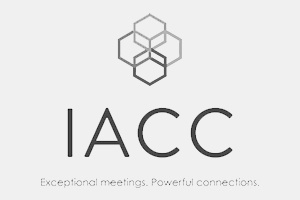Thrive Partners spoke at our Learning and Development Thought Leaders' Conference on Friday 8th June. They have a really clear point of view on how to develop learning interventions that really work – interventions that deliver value for both individuals, and for the whole business. Read more in their guest blog below....
Four principles for success
These principles guide our advice to clients when we talk about delivering excellent, contemporary learning experiences:
- Interventions must be fast, easy and worthwhile – so it has to be as simple to access as Amazon or Netflix, and it has to deliver tangible results for the learner and the business
- Interventions must train in core skills and soft skills – so that the skills that CEO's really want (like creativity, leadership, adaptability and problem-solving) are developed as routinely as product or compliance knowledge
- Interventions must make the best of people and the best of digital – so while people have to be at the heart of learning experiences, we should scale this using digital technologies
- Interventions must be inclusive, for the whole business – so, old or young, working in the office or on the move, the access must be easy and straightforward.
Since setting our business up a couple of years ago, we’ve tested our views on businesses around the world – from Seattle to Sydney, Dubai to Mumbai – and we’re starting to build a picture of how effectively learning and development practitioners are rising to the challenge of digital learning.
It’s a mixed bag
Large organisations have it covered when it comes to some areas of their learning agenda.
Self-declared scores show that they’re great at putting people at the heart of their learning approaches, and they claim to know that their learning interventions are worthwhile. They’re similarly confident when it comes to training-in the core skills learners need to do their job.

But it’s not all great news
While corporates state that core skills learning happens frequently and well, they’re equally unanimous when they describe soft-skills training as happening in a way that’s patchy and inconsistent. In an age where CEOs know that those personal, innately-human skills are most needed, learning teams are lagging when it comes to meeting this C-suite demand.
Four-fifths of our sample felt that digital aspects of their offering were sub-par. In a world where the average smartphone user taps their phone 2,600 times a day, we all expect great online experiences to be, literally, at our fingertips. What’s more, only a few of our sample agreed that they offered Learning and Development in a timely way.
And just 35% of our sample could say with any degree of confidence that their learning offer was really appealing and effortless to learners. In an age of great digital experiences – ordering a cab from Uber, getting a date on Tinder, or getting a takeaway from Deliveroo - this is a problem.
For learning to stick, your offer must be sticky
This notion of stickiness comes down to a few things for us at Thrive Partners. For a start, learning needs to be learner-centric – offering a brilliant, personalised experience that acknowledges the fact that individuals progress and grow at different rates, and in different ways.
What’s more, we know that learning experiences have to get sexier. In an age where we battle for attention, we have to make learning look and feel more like those digital services we name checked before – to entice learners into trying our learning offers, and then coming back for more.
And we need to get much better at scaling human-to-human learning by using digital. In an age where loneliness is the silent epidemic sweeping through the UK, we need to find better ways to deliver person-to-person experiences in new and innovative ways; ways that are, ultimately, more effective.
Which brings us to our final point.

If you’re not sticky, are you really being effective?
As organisations get leaner and sharper, and disruptive digital models strip costs to undercut traditional ones, demonstrable ROI is a must. We know that, as a learning and development community, learners start keen, but drop off quickly – and against this backdrop, can we always, honestly, justify our spend? Can we show how and where learning is happening, and use this to inform new curriculum interventions? And can we be sure that the whole business is learning as quickly as individuals can?
Pam Bateson is CEO & Co-founder at Thrive Partners, leaders in popular learning. Their core product, MyThrive, is already democratising coaching with digital, and helping organisations to learn as quickly as organisations.






